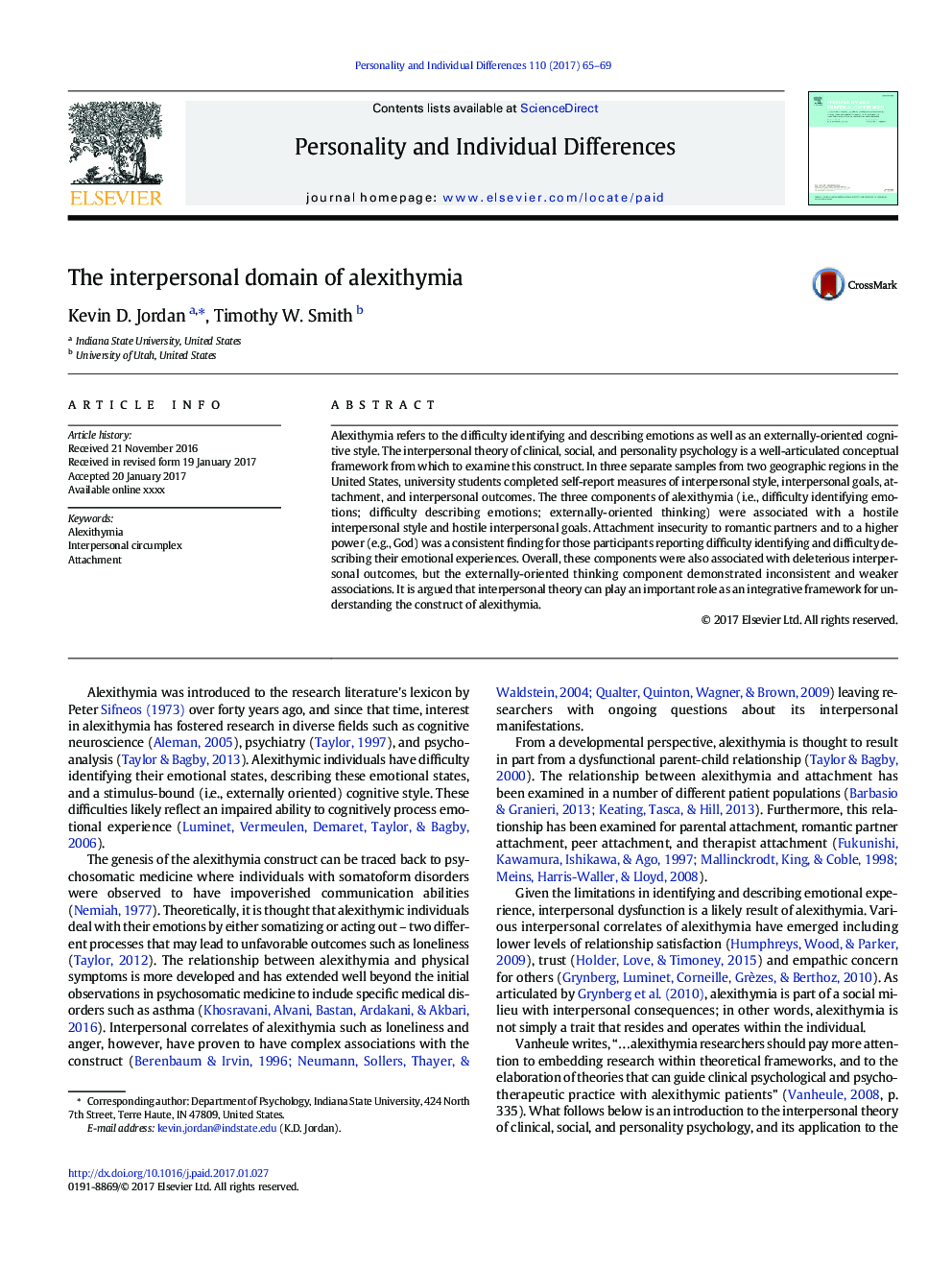| Article ID | Journal | Published Year | Pages | File Type |
|---|---|---|---|---|
| 5035807 | Personality and Individual Differences | 2017 | 5 Pages |
Abstract
Alexithymia refers to the difficulty identifying and describing emotions as well as an externally-oriented cognitive style. The interpersonal theory of clinical, social, and personality psychology is a well-articulated conceptual framework from which to examine this construct. In three separate samples from two geographic regions in the United States, university students completed self-report measures of interpersonal style, interpersonal goals, attachment, and interpersonal outcomes. The three components of alexithymia (i.e., difficulty identifying emotions; difficulty describing emotions; externally-oriented thinking) were associated with a hostile interpersonal style and hostile interpersonal goals. Attachment insecurity to romantic partners and to a higher power (e.g., God) was a consistent finding for those participants reporting difficulty identifying and difficulty describing their emotional experiences. Overall, these components were also associated with deleterious interpersonal outcomes, but the externally-oriented thinking component demonstrated inconsistent and weaker associations. It is argued that interpersonal theory can play an important role as an integrative framework for understanding the construct of alexithymia.
Related Topics
Life Sciences
Neuroscience
Behavioral Neuroscience
Authors
Kevin D. Jordan, Timothy W. Smith,
